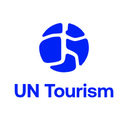World’s Biggest Conference on Wine Tourism Celebrates: Rural Transformation and Jobs

Valle de Colchagua, Chile - The 4th Global Conference on Wine Tourism, hosted by the World Tourism Organization (UNWTO) and the Government of Chile, has concluded with a call to use the sector's unique ability to rejuvenate and support rural communities.
Held in the Colchagua Valley, home to some of Chile's most prominent wine producers, the event saw more than 400 participants from destinations including Argentina, France, Italy, Portugal, South Africa, Spain and USA, come together to explore the many opportunities that wine tourism can bring. The event further strengthened ties between UNWTO and Chile, a Member State since 1979. The previous week, the United Nations specialized agency also presented the case for tourism as a key contributor to the sustainability agenda at the UN Climate Change Summit, COP25 in Madrid, held under the Presidency of Chile.
Welcoming delegates, UNWTO General-Secretary Zurab Pololikashvili said: "Wine tourism creates jobs and entrepreneurship opportunities. It touches all areas of the regional economy through its linkages to handicrafts, gastronomy and agriculture. There lies its great potential to generate development opportunities in remote destinations."
In this regard, the Minister of Economy, Development and Tourism, Lucas Palacios, said that "wine tourism continues to grow thanks to the thrust of the vineyards that are challenged to go further and further, expanding their horizons beyond production and the sale of wine, but it is also thanks to the fact that, as a State, we have implemented a public policy that fosters sustainable tourism development, where we have tremendous potential."
The Undersecretary of Tourism, Mónica Zalaquett, said that "this is an opportunity to show our territory. Today there are more than 100 vineyards open to wine tourism and this congress is about that. They are going to transfer knowledge, share experiences, promote dialogues and deliver tools, so that we can improve this wine tourism offer".
In particular, the fourth edition of the most important annual event in enotourism, focused on the sector's ability to transform rural communities, build economies and create jobs outside of major cities. Alongside sessions on tourism as a driver of rural socio-economic development, the conference also featured workshops and debates on how destinations can diversify and market themselves to meet changing consumer demands. At the same time, UNWTO experts also explained the potential benefits of embracing digital transformation and entrepreneurship in tourism, particularly in rural areas.
The Alentejo region in Portugal will host the 2020 edition of the UNWTO Global Conference on Wine Tourism. Next year will also be UNWTO's year of 'Tourism and Rural Development', with a number of specially-themed events planned.
About UN Tourism
The World Tourism Organization (UN Tourism) is the United Nations agency responsible for the promotion of responsible, sustainable and universally accessible tourism.
As the leading international organization in the field of tourism, UN Tourism promotes tourism as a driver of economic growth, inclusive development and environmental sustainability and offers leadership and support to the sector in advancing knowledge and tourism policies worldwide.
Our Priorities
Mainstreaming tourism in the global agenda: Advocating the value of tourism as a driver of socio-economic growth and development, its inclusion as a priority in national and international policies and the need to create a level playing field for the sector to develop and prosper.
Promoting sustainable tourism development: Supporting sustainable tourism policies and practices: policies which make optimal use of environmental resources, respect the socio-cultural authenticity of host communities and provide socio-economic benefits for all.
Fostering knowledge, education and capacity building: Supporting countries to assess and address their needs in education and training, as well as providing networks for knowledge creation and exchange.
Improving tourism competitiveness: Improving UN Tourism Members' competitiveness through knowledge creation and exchange, human resources development and the promotion of excellence in areas such as policy planning, statistics and market trends, sustainable tourism development, marketing and promotion, product development and risk and crisis management.
Advancing tourism's contribution to poverty reduction and development: Maximizing the contribution of tourism to poverty reduction and achieving the SDGs by making tourism work as a tool for development and promoting the inclusion of tourism in the development agenda.
Building partnerships: Engaging with the private sector, regional and local tourism organizations, academia and research institutions, civil society and the UN system to build a more sustainable, responsible and competitive tourism sector.
Our Structure
Members: An intergovernmental organization, UN Tourism has 160 Member States, 6 Associate Members, 2 Observers and over 500 Affiliate Members.
Organs: The General Assembly is the supreme organ of the Organization. The Executive Council take all measures, in consultation with the Secretary-General, for the implementation of the decisions and recommendations of the General Assembly and reports to the Assembly.
Secretariat: UN Tourism headquarters are based in Madrid, Spain. The Secretariat is led by the Secretary-General and organized into departments covering issues such as sustainability, education, tourism trends and marketing, sustainable development, statistics and the Tourism Satellite Account (TSA), destination management, ethics and risk and crisis management. The Technical Cooperation and Silk Road Department carries out development projects in over 100 countries worldwide, while the Regional Departments for Africa, the Americas, Asia and the Pacific, Europe and the Middle East serve as the link between UN Tourism and its 160 Member States. The Affiliate Members Department represents UN Tourism's 500 plus Affiliate members.
UNWTO Communications Department
+34 91 567 8100
UN Tourism
